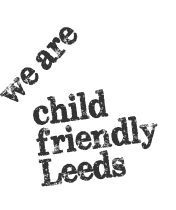The Power of Play
Play is a very misused adult word. To a child it is a way of life. To an adult it often means unimportant recreational things we do when we are not working
Play describes our built-in desire to explore, socialise and have fun. It is the main way we engage with the world around us and form relationships. Play is central to our experience and enjoyment of living.
Why is play so important?
Children have a right to play by law. Article 31 of the United Nations Convention on the Rights of the Child (UNCRC) creates a specific right for all children to have rest and leisure. This includes play and recreational activities appropriate to their age, and cultural and arts-based experiences.
Play is fundamental to healthy development. It is the framework through which we learn. Through play, we become able to:
- build and sustain relationships
- challenge the limits of our physical selves and environments
- problem solve effectively.
Most importantly, having sufficient opportunities for play is a key indicator of our happiness: play is pleasure – it contributes to quality of life and sense of well-being.
Read Play Scotland's evidence base for Getting it right for play: The power of play
A table by Ludicology (2023) to show the benefits of playing, compared to the negative impact of not playing:
| Benefits of playing | Consequences of not playing |
|
|
| = resilience and wellbeing | = vulnerability and poor health |

